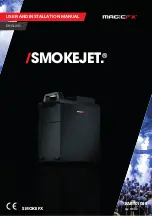
If the thread is torn while sewing, the thread
tension is too tight.
If small loops are formed while sewing,
the thread tension is too loose.
In both cases the thread tension has to
be adjusted.
The upper thread tension and the under thread
tension must be in proper relation.
Adjustment of the thread tensions:
Regulating the under thread tension
Checking the under thread tension
19
The bobbin thread tension is just right, if you
can easily draw the thread just with a bit of
resistance out of the bobbin.
The under thread tension should rarely need
to be adjusted, since it has already been
preset by the manufacturer for general
sewing work.
However, when using especially light or heavy
fabrics, the under thread may need to be
adjusted.
1. The under thread tension can be changed by
turning the adjusting screw of the bobbin
case. For regulating the tension, use the
small screwdriver.
Take out the bobbin case:
To decrease tension:
Turn the screw counterclockwise.
To increase tension:
Turn the screw clockwise.
uneven
stitches
even
stitches
1
The easiest way to check the tension of the
under thread is to use a medium zigzag stitch
for sewing a cloth you would like to sew. Make
sure to use the appropriate needle and threads.
It will be especially obvious, when you use
different colors for the upper and under threads.
Sew only a few zigzag stitches.
The thread tension is correct, when the under thread
cannot be seen on the upper side of the cloth.
Be careful that the stitches are always even
(see figure).
















































